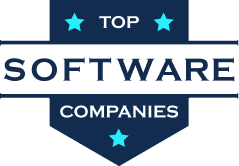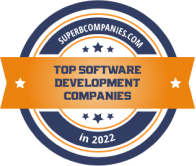A Comprehensive Guide to Embedded Software Development for Businesses

In an increasingly interconnected world, businesses across various industries rely on embedded systems to power their products and services. Embedded software development is a specialized field that creates software solutions tailored for these systems. In this comprehensive guide, we will explore what embedded software development entails, highlight the reasons for businesses to invest in it, and provide insights into the benefits of leveraging this technology for your company’s success.
What is Embedded Software Development?
What is Embedded Software Development?
Embedded software development is a specialized branch of software engineering that focuses on creating software solutions tailored for embedded systems. But to truly appreciate the significance of this field, it’s crucial to delve deeper into what embedded systems are and how they differ from general-purpose computing.
Understanding Embedded Systems
Embedded systems are dedicated computing devices designed to perform specific tasks or functions. Unlike general-purpose computers, which are versatile and can run a wide range of software applications, embedded systems are engineered to excel in a single area. These systems are often tightly integrated with hardware components, allowing them to control and monitor various aspects of a device or process.
Embedded systems can be found in numerous applications across industries. Here are a few examples:
- Consumer Electronics: Embedded systems are the driving force behind the functionality of everyday devices such as microwave ovens, digital cameras, and smart thermostats. These systems manage the core operations of the device without running general-purpose software.
- Automotive: Your car is a treasure trove of embedded systems. Engine control units (ECUs), airbag systems, infotainment systems, and advanced driver assistance systems (ADAS) are all powered by embedded software.
- Industrial: In manufacturing and process control, embedded systems control machinery, manage data, and ensure precision in processes. Programmable logic controllers (PLCs) are a prime example of embedded systems in industrial settings.
- Medical: Medical devices like pacemakers, patient monitoring systems, and diagnostic equipment depend on embedded software for reliability, accuracy, and real-time monitoring.
- Aerospace and Defense: In aviation, embedded systems handle critical tasks such as navigation, communication, and flight control. Missile guidance systems and radar control are other examples where embedded software plays a pivotal role.
The Essence of Embedded Software Development
Embedded software is at the heart of these systems, acting as the intermediary between the hardware and the user or operator. It is responsible for managing hardware components, ensuring they function correctly, and providing a user-friendly interface when necessary.
The key characteristics of embedded software development include:
- Resource Constraints: Embedded systems often have limited resources, such as memory and processing power. This necessitates the optimization of software to operate efficiently within these constraints.
- Real-Time Operation: Many embedded systems require real-time responses. For instance, in an automotive airbag system, the software must deploy the airbag in a fraction of a second when a crash is detected. Embedded software must meet these stringent timing requirements.
- Dedication to a Single Task: Unlike general-purpose computers that can run a multitude of applications, embedded systems are designed for a single specific task. This specialization allows for efficiency and reliability.
- Long Lifecycle: Many embedded systems have long lifecycles, and the software must be maintained and updated over extended periods to ensure ongoing performance and security.
Embedded software development professionals specialize in creating and optimizing software for these unique challenges. They employ programming languages such as C, C++, and assembly, and they have a deep understanding of hardware components, microcontroller architecture, and real-time operating systems.
In essence, embedded software development is the cornerstone of modern technology, ensuring that the devices and systems we depend on operate reliably, efficiently, and often imperceptibly, in the background of our daily lives.
The Reasons to Choose Embedded Software Development for Your Business

Embedded software development has evolved into a strategic choice for businesses across diverse industries. The decision to invest in this specialized field can bring forth a multitude of benefits, each contributing to the success and growth of your enterprise. Here, we explore the compelling reasons why businesses should consider embracing embedded software development.
1. Product Differentiation and Innovation
Embedded software empowers your business to offer unique and innovative features in your products. By customizing the software to meet the specific needs of your devices or systems, you can set your offerings apart from competitors. This differentiation can drive demand and brand recognition, making your products more appealing to customers.
Read Our Page : Hire Indian Developers
2. Optimized Performance
Embedded software is tailored to work seamlessly with the hardware it runs on. This optimization ensures that your devices or systems operate efficiently, delivering a high level of performance and user satisfaction. Efficient use of resources not only enhances user experience but can also lead to cost savings.
3. Scalability and Flexibility
As your business grows and evolves, embedded software can adapt to new requirements. You can easily incorporate updates, improvements, and new features into your systems, allowing you to stay competitive and responsive to market demands.
4. Cost-Efficiency
Customized embedded software can minimize hardware resource requirements, potentially reducing manufacturing costs. Through efficient resource utilization, your business can maintain or even improve product quality while reducing expenses, ultimately enhancing your bottom line.
5. Enhanced Security
In today’s digital landscape, security is paramount. Custom embedded software solutions can be designed with security in mind, providing a robust shield against potential threats and vulnerabilities. By protecting your devices and the data they handle, you can instill confidence in your customers and meet regulatory requirements.
6. Long-Term Support and Maintenance
Off-the-shelf solutions may be discontinued or receive limited support over time. With custom-embedded software, you have control over the software’s lifecycle. This means you can ensure ongoing support, regular updates, and maintenance, extending the lifespan of your products or systems and preserving their reliability.
7. Competitive Advantage
Staying at the forefront of technological advancements through embedded software development can give your business a competitive edge. Being a pioneer in your industry can help you establish market leadership, attract a loyal customer base, and be better prepared to respond to changing market dynamics.
8. Industry-Specific Solutions
Embedded software development allows for tailoring software solutions to meet the unique requirements of your industry. Whether you operate in healthcare, automotive, industrial manufacturing, aerospace, or any other sector, custom software can address the specific challenges and opportunities your business faces.
9. User Experience and Loyalty
High-quality embedded software directly impacts the user experience. It can ensure the reliability and usability of your products, ultimately leading to customer satisfaction and loyalty. A satisfied customer is more likely to become a repeat customer and recommend your products to others.
10. Reduced Time-to-Market
Custom software development can streamline the software development process, potentially reducing the time it takes to bring a product to market. This agility is particularly valuable in industries where time-to-market can make a significant difference.
Leveraging Embedded Software Development for Business Success

The integration of embedded software development into your business strategy can be a catalyst for success, opening up a realm of opportunities and advantages that can positively impact your operations, products, and services. Here, we delve into how you can leverage embedded software development to drive business success.
1. Tailored Solutions for Specific Needs
By embracing embedded software development, your business can ensure that the software powering your devices or systems is custom-tailored to meet your exact needs. This customization allows you to address specific challenges, optimize processes, and deliver unique features that set your offerings apart in the market.
2. Quality Assurance and Reliability
Custom-developed embedded software can undergo rigorous testing and quality assurance processes to guarantee reliability. The consistent and dependable performance of your products or systems builds trust with customers, leading to increased satisfaction and loyalty.
3. Enhanced Product Performance and Efficiency
Optimized software can significantly enhance the performance of your hardware, improving efficiency, responsiveness, and overall user experience. Devices or systems running efficiently can lead to cost savings, reduce energy consumption, and potentially extend the lifespan of your products.
4. Real-Time Responsiveness
Many industries, such as automotive and industrial automation, require real-time responses from embedded systems. Custom software development can ensure that your devices meet strict timing requirements, ensuring safety and precision in time-sensitive applications.
5. Scalability and Adaptability
In a rapidly changing business environment, embedded software’s scalability and adaptability are paramount. It enables your systems to evolve with your business, accommodating new requirements and technologies seamlessly. This flexibility allows you to stay competitive and agile.
6. Competitive Advantage and Market Positioning
Investing in cutting-edge embedded software can give your business a competitive edge. Being at the forefront of technological advancements in your industry can help you establish market leadership, attract a loyal customer base, and respond proactively to changing market dynamics.
7. Cost-Efficiency
Customized embedded software can optimize the utilization of hardware resources, potentially reducing manufacturing costs. Your business can maintain or improve product quality while reducing expenses, thus improving profit margins.
8. Long-Term Sustainability and Support
With custom software solutions, your business has the power to control the software’s lifecycle. You can ensure ongoing support, regular updates, and maintenance, extending the lifespan of your products and systems. This longevity provides your customers with confidence and peace of mind.
9. Security and Compliance
Cybersecurity is a critical concern in today’s digital age. Custom software solutions can be designed with security in mind, safeguarding your devices and the data they handle. Compliance with industry-specific regulations and standards is easier to achieve with tailored solutions.
10. User Experience and Brand Reputation
High-quality embedded software directly influences the user experience. A positive user experience fosters customer satisfaction and loyalty, elevating your brand reputation. Satisfied customers are more likely to return for repeat business and recommend your products to others.
11. Innovation and Growth Opportunities
Embedded software development allows your business to innovate continuously. New features, functionality, and capabilities can be seamlessly integrated into your products, opening doors to new markets and revenue streams.
12. Industry-Specific Solutions
Custom software development can address the unique challenges and opportunities in your industry. Whether you operate in healthcare, automotive, industrial manufacturing, aerospace, or any other sector, tailored software solutions can help you address industry-specific demands effectively.
Conclusion
Embedded software development is a strategic choice for businesses looking to innovate, enhance their products and services, and gain a competitive edge in the market. By understanding the significance of embedded systems and how they can be tailored to your business needs, you can capitalize on the power of embedded software to drive your company’s success. Whether it’s improving product performance, security, or differentiation, embedded software development can be the key to unlocking your business’s full potential in our interconnected world.
Ready to harness the potential of embedded software for your business success? Contact Imenso Software, your trusted partner in custom embedded software solutions. Get in touch today to explore how our expertise can propel your business forward.
We’re honored to mention that our efforts have been recognized by renowned B2B review and research platforms such as GoodFirms, Clutch, MirrorView, and many more.
Want more information about our services?
Similar Posts

Offshore vs. Nearshore vs. Onshore Development: What’s Best for Scaling Startups?
Startup entrepreneurs find building an effective development team at affordable prices challenging. The executives must choose between working with local developers or overseas workers. Also, it’s tough to choose between domestic developers and overseas outsourcing. But, this will help you optimize price, quality maintenance, and team bonding. WhatsApp represents a successful company whose operations significantly […]...

Building High-Performance Android Apps: Best Practices and Optimization Strategies
Are you tired of your Android app’s sluggish performance? Do long loading times and unresponsive interactions leave your users frustrated? If you’ve been searching for the key to unlocking high-performance Android apps, look no further! Welcome to our comprehensive blog on “Building High-Performance Android Apps: Best Practices and Optimization Strategies.” In today’s fast-paced digital world, […]...

8 Responsive Web Design Principles You Need to Know
In today’s fast-paced digital world, where our lives are intricately intertwined with technology, the way we experience the internet has undergone a profound transformation. Consider this: did you know that as of 2021, there are over 4.6 billion active internet users worldwide, and more than half of them access the web primarily through mobile devices? […]...









